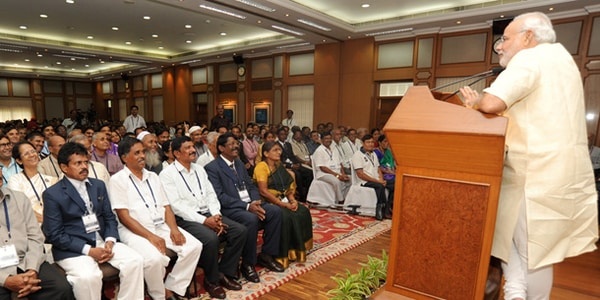India’s First Bio-Happy District Is Changing Everything, Here’s How
In a remarkable step towards sustainable development, the newly formed Keyi Panyor district in Arunachal Pradesh is preparing to make history as India’s first Bio-Happy District. This ambitious initiative seeks to harmonise human well-being with biodiversity conservation, creating a development model where ecology, livelihoods, and public health work in tandem. The project revives the visionary concept of Biohappiness, introduced by agricultural scientist M. S. Swaminathan, who emphasised that true progress is only possible when people and nature thrive together. The initiative is being implemented jointly by the M. S. Swaminathan Research Foundation and the district administration, highlighting the importance of scientific guidance in grassroots-level planning. Through this effort, Keyi Panyor could become a blueprint for sustainable rural development in ecologically sensitive and tribal regions across India.Understanding BiohappinessBiohappiness is more than an abstract idea; it is a practical framework that links biodiversity to human welfare. The concept stresses that conserving biodiversity can directly enhance nutrition, livelihoods, and public health. When ecosystems are preserved and sustainably used, communities experience improved food security, healthier lives, and greater economic resilience. Soumya Swaminathan, Chairperson of the Foundation, explained that the Keyi Panyor project will focus on livelihood assessment, agro-biodiversity mapping, and ecological system evaluation, ensuring that development decisions are guided by both environmental and social considerations. In essence, Biohappiness transforms ecological stewardship from a restriction into a foundation for prosperity.Balancing Livelihoods and EcologyThe Bio-Happy District initiative places local communities at its core. Keyi Panyor’s rich forests, rivers, and traditional farming practices provide the perfect laboratory for integrating human and environmental needs. The project will study traditional farming systems, indigenous knowledge, and biodiversity-rich landscapes to design interventions that strengthen local livelihoods without degrading natural resources. Arunachal Pradesh, in India’s Eastern Himalayas, is a biodiversity hotspot with fragile ecosystems and a diverse tribal population. The insights gained here will not only benefit Keyi Panyor but are expected to shape policy frameworks for other ecologically sensitive areas, helping to reconcile development and conservation across India.Linking Environment, Health, and TechnologyThe initiative recognises the interconnectedness of environmental health and human well-being. Speaking at a sustainability dialogue in Chennai, Soumya Swaminathan emphasised that environmental degradation directly impacts public health. Methane emissions from waste, she noted, are highly potent greenhouse gases whose reduction can deliver immediate climate benefits. To address these challenges, the Foundation plans to collaborate with IIT Madras and Sri Ramachandra Institute of Higher Education and Research to study health risks faced by communities living near landfills and other vulnerable areas. Biohappiness: Paving the Way for a Sustainable and Prosperous IndiaBiohappiness can transform India’s development by creating a model where ecological conservation and human well-being go hand in hand. By protecting biodiversity, promoting traditional farming practices, and improving public health, it ensures food security, sustainable livelihoods, and resilient communities. Projects like the Bio-Happy District in Keyi Panyor can reduce environmental degradation, combat climate change, and empower local populations, especially women and youth. By linking nature, technology, and policy, biohappiness offers a roadmap for inclusive growth, showing that economic progress does not have to come at the expense of the environment but can thrive alongside it.Broader Implications for India and the WorldBiohappiness reflects a global understanding that environmental conservation and human prosperity are inseparable. As countries around the world seek models for sustainable development, Keyi Panyor’s approach offers actionable lessons: communities can thrive while ecosystems flourish, and development need not come at the cost of nature. By pioneering this integration, Keyi Panyor positions itself at the forefront of India’s sustainability discourse. It offers hope that the country can address climate challenges, promote health, and enhance livelihoods simultaneously, creating a truly resilient society .

.jpeg)
.jpg)
.jpg)



.jpg)
(1).jpeg)
 (1).jpeg)
 (1).jpeg)

(1).jpeg)
 (1).jpeg)
.jpg)
.jpeg)